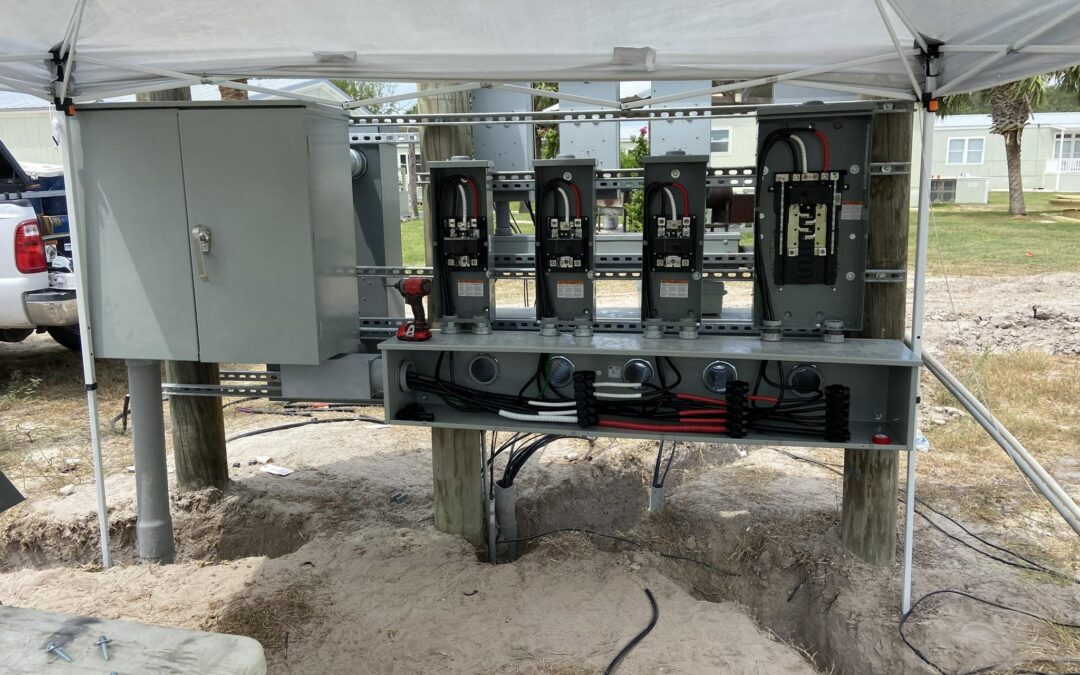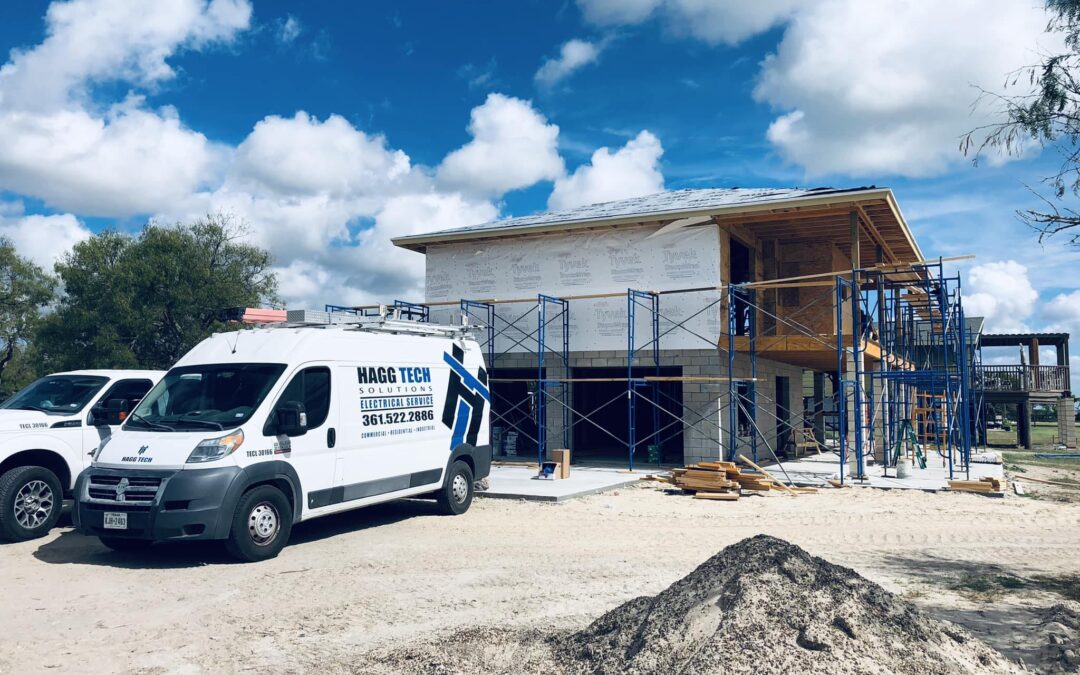
Hiring an Electrician in New Braunfels, Texas: A Guide to Finding the Right Professional
Hiring an Electrician in New Braunfels, Texas: A Guide to Finding the Right Professional
When it comes to electrical work in your home or business in New Braunfels, Texas, hiring the right electrician is not just a matter of convenience—it’s a necessity for safety and efficiency. The quaint charm of New Braunfels, with its historic buildings and scenic river views, demands a careful approach to any modifications or repairs, particularly when it comes to electrical systems. Here’s your guide to finding a reliable electrician in New Braunfels who can handle your project with expertise and care.
Understanding Local Requirements
New Braunfels, situated between San Antonio and Austin, falls under Texas state regulations for electrical work. In Texas, electricians must be licensed by the Texas Department of Licensing and Regulation (TDLR). This ensures that they have met specific requirements in terms of education and experience, and have passed an examination that tests their knowledge of electrical codes and practices. When searching for an electrician, always check that they are properly licensed and in good standing with the TDLR.
Why Hire Locally?
Hiring a local electrician offers several advantages:
– Familiarity with Local Codes: New Braunfels has specific codes and standards that must be adhered to, especially in historic areas. Local electricians are more likely to be familiar with these regulations.
– Convenient Scheduling: Local electricians can respond more quickly to your needs, making it easier to schedule appointments and emergency services.
– Supporting Local Business: By hiring locally, you contribute to the local economy, supporting your community and fostering relationships with local service providers.
What Services Do Electricians in New Braunfels Offer?
Electricians in New Braunfels offer a wide range of services to accommodate the diverse needs of residents and businesses:
– Residential electrical repairs and installations
– Commercial electrical work, including installations for new constructions and maintenance for existing facilities
– Specialized services for historic homes and buildings
– Installation of smart home devices and systems
– Emergency electrical services
Tips for Hiring the Right Electrician
1. Check Reviews and Testimonials: Start by checking online reviews on platforms like Google, Yelp, or local forums. Positive reviews and testimonials from other New Braunfels residents can provide insight into an electrician’s reliability and quality of service.
2. Verify Licensing and Insurance: Ensure that any electrician you consider is licensed and insured. This protects you from liability and ensures that the electrician meets state and local standards for safety and professionalism.
3. Get Multiple Quotes: For any significant electrical work, it’s wise to get quotes from several electricians. This will give you a sense of what the market rate is and what services are included.
4. Ask for References A reputable electrician should be able to provide references upon request. Contact these references to ask about their experiences and the quality of the work performed.
5. Consider Their Specialties: Depending on your needs, you may want to look for an electrician who specializes in certain types of work, like historic buildings or modern smart home installations.
Conclusion
Finding the right electrician in New Braunfels, Texas, means choosing a professional who not only has the technical skills but also understands the local requirements and values quality and safety. Whether you’re upgrading your home, dealing with an emergency, or setting up a new business, taking the time to choose the right electrician can save you time, money, and stress in the long run. Remember, good electrical work not only powers your home or business but also ensures the safety and efficiency of your property.

Understanding the Difference Between an Electrician and a Master Electrician
When it comes to electrical work, the expertise of the professional you hire can make a significant difference in the quality and safety of the job. Most people recognize the term “electrician,” but may not be as familiar with the term “master electrician.” Both are skilled workers, but there are important distinctions between the two roles. Understanding these differences can help you make informed decisions about whom to hire for your electrical needs.
What is an Electrician?
An electrician is a tradesperson who specializes in the electrical wiring of buildings, transmission lines, stationary machines, and related equipment. Electricians can be employed in the installation of new electrical components or the maintenance and repair of existing electrical infrastructure. Electricians may also specialize in wiring ships, airplanes, and other mobile platforms, as well as data and cable lines.
Educational and Training Requirements
To become an electrician, one typically needs to complete a combination of formal education and apprenticeship. Most start their journey with technical schooling or a vocational program that provides foundational knowledge of electrical theory, safety practices, and basic wiring techniques. Following this, they enter an apprenticeship program that lasts about four to five years, during which they gain hands-on experience under the supervision of more experienced electricians.
Licensing
After completing their apprenticeship, electricians must pass a licensing exam to become licensed journeymen. This certification allows them to work independently, but still under the broader supervision of a master electrician. The requirements for licensing vary by state or region but generally involve proving a certain level of expertise and knowledge in the field.
What is a Master Electrician?
A master electrician is someone who has reached the highest level of certification for electrical work and often has extensive experience in the industry. This position is seen as a step above a regular licensed electrician.
Additional Training and Experience
Master electricians have typically worked as journeymen for several years and have completed further qualifications that demonstrate their comprehensive knowledge of electrical systems, including codes, design, and management. They must pass a rigorous exam that tests their knowledge of electrical law, the National Electrical Code, and all aspects of electrical construction.
Responsibilities
Master electricians are qualified to plan, design, and execute complex projects. They also manage other electricians, ensuring compliance with statutory requirements and safety standards. In many cases, they run their own businesses and may work on specialized electrical systems that require a higher level of expertise.
Why the Distinction Matters
The distinction between an electrician and a master electrician is important for several reasons:
1. Expertise and Safety: Master electricians have a deeper understanding of the intricacies of electrical systems, which is crucial for the safety and efficiency of higher-stakes projects.
2. Complex Projects: If your project involves complex systems or large-scale installations, a master electrician is often better equipped to handle such challenges.
3. Legal Requirements: Some jurisdictions or types of projects may legally require the oversight or signature of a master electrician.
Conclusion
Whether you need a simple repair or a large commercial installation, understanding the qualifications of the professionals you hire is crucial. While both electricians and master electricians can provide high-quality electrical services, the complexity and scale of your project might necessitate the advanced skills and experience of a master electrician. By recognizing the distinctions between these roles, you can better choose the right professional for your electrical needs.
When it comes to electrical work in your home or business, the temptation to cut corners can be strong. Whether it’s a quick fix or a major installation, choosing the right professional can make all the difference. While hiring a handy friend or trying to DIY might seem like a cost-effective solution, the reality is that working with electricity requires specialized knowledge and skills. Here’s why hiring a licensed electrician isn’t just a good idea—it’s essential.
Safety First
The most compelling reason to hire a licensed electrician is safety. Electrical work is inherently dangerous. Without the proper training, people risk serious injury or even death. Licensed electricians have undergone extensive training and certification processes. They understand the complexities of home and commercial wiring, including the latest safety standards and local building codes. This expertise ensures that all work is done safely and correctly, protecting not just the workers, but everyone who uses the premises.
Quality of Work
Licensed electricians bring a level of professionalism and quality to their work that unlicensed practitioners simply can’t match. They have access to the right tools and materials, and they stay updated on the latest technologies and methods. This results in installations and repairs that are not only safe but also reliable and durable. When you hire a licensed electrician, you can trust that the electrical systems will function efficiently and are less likely to cause problems in the future.
### Cost-Effectiveness
It might seem paradoxical, but hiring a licensed electrician can actually save you money in the long run. First, their work is often guaranteed, meaning if something goes wrong, it gets fixed without additional charges. More importantly, correctly executed work minimizes the risk of damage and the need for costly repairs or replacements down the line. Unlicensed work, on the other hand, could lead to electrical failures that damage your electronic devices or, in the worst case, cause fires.
Compliance with Local Codes and Permits
Electrical work often requires permits and inspections to ensure it meets local safety standards. Licensed electricians are familiar with these requirements and can handle the necessary paperwork and procedures. This not only speeds up the process but also ensures that all electrical work is compliant with the latest regulations. Non-compliance can lead to fines, legal issues, and problems when you try to sell your property.
Peace of Mind
Finally, hiring a licensed electrician provides peace of mind. Knowing that a highly trained and qualified professional is handling one of the most critical systems in your building allows you to relax. Whether it’s a new installation, an upgrade, or routine maintenance, you can be confident that the job is done right.
Conclusion
Electrical work is not a place to compromise on quality or safety. Hiring a licensed electrician ensures that all aspects of your electrical systems are handled professionally and in compliance with the law. While it might be tempting to save a few dollars upfront by going the DIY route or hiring an unlicensed individual, the potential risks and long-term costs are simply not worth it. For the safety, efficiency, and reliability of your electrical installations, always choose a licensed professional.

